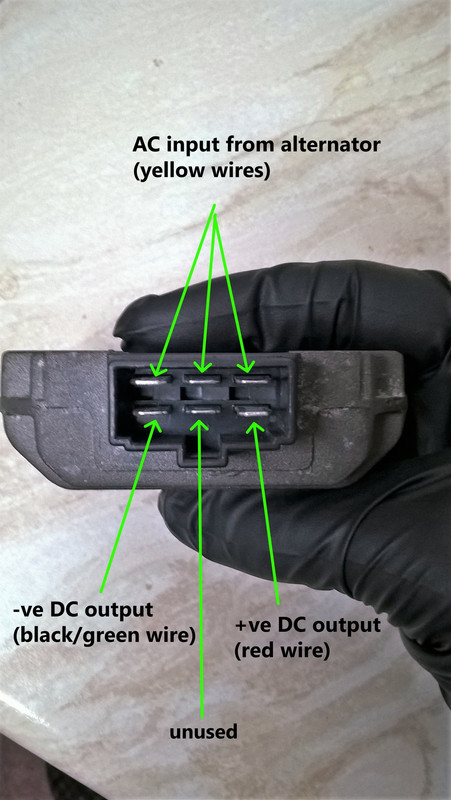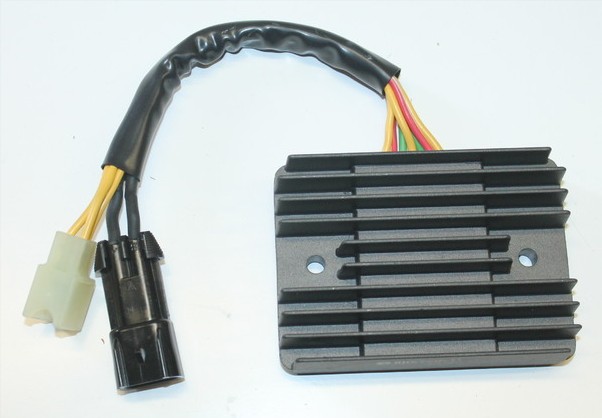Ok, so this isn't a Ducati component, (it's actually from my Gilera), but the tests can be used on most rectifier units, including Monsters. Since Regulator/Rectifier (R/R) problems seem to appear quite frequently on the forum, I thought I'd share these tests as someone else might find them useful.
For identification purposes, this is a three-phase, full-wave, bridge rectifier using six diodes to convert the AC voltage from the alternator to DC voltage to the battery.
 Simplified rectifier diagram
Simplified rectifier diagram
 Gilera 5-wire rectifier
Gilera 5-wire rectifier
All of the current Monsters should similarly be three-phase (with three yellow wires), but the early versions had single-phase alternators (two yellow wires) and so will have a different R/R to suit. The Monster R/Rs also have dual positive (red) and negative (black or green) wires, (making seven in total), which are sometimes siamesed together as here.
 Typical Monster 7-wire rectifier
My problem
Typical Monster 7-wire rectifier
My problem
I'd noticed that my battery was going flat despite being boosted by an Optimate.
Preliminary checks
The first suspect was the battery itself. Although it's only a couple of years old, it doesn't get used much so could have deteriorated. However, after fully charging it, it held 12.8V for a week, so then the alternator seemed a likely culprit.
Checking the voltage at the battery with the engine at 3,000 revs gave only a maximum of 12.5V when you'd expect high 13/low 14V, which again suggested the alternator.
An (external) check of the alternator with a multimeter suggested that it was working normally, so that just left the R/R, (all connecting wiring appeared fine).
I'd not really considered the R/R as usually, when it fails, it seems to result in overcharging rather than undercharging.
To check the rectifier component of the R/R, there are four tests to be made on each of the three alternator connections (12 in total). So first turn your meter to the diode check facility:














 Threaded Mode
Threaded Mode